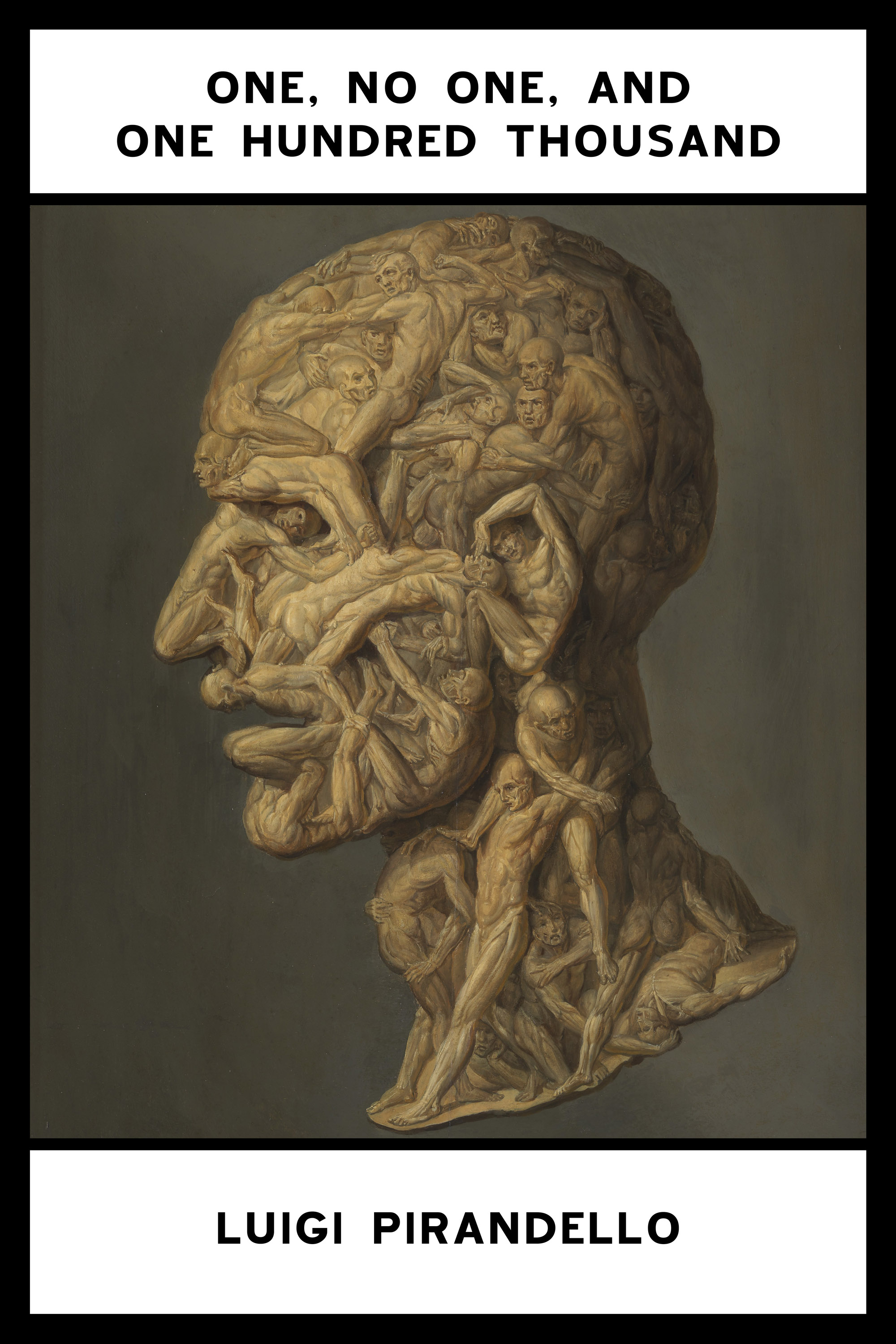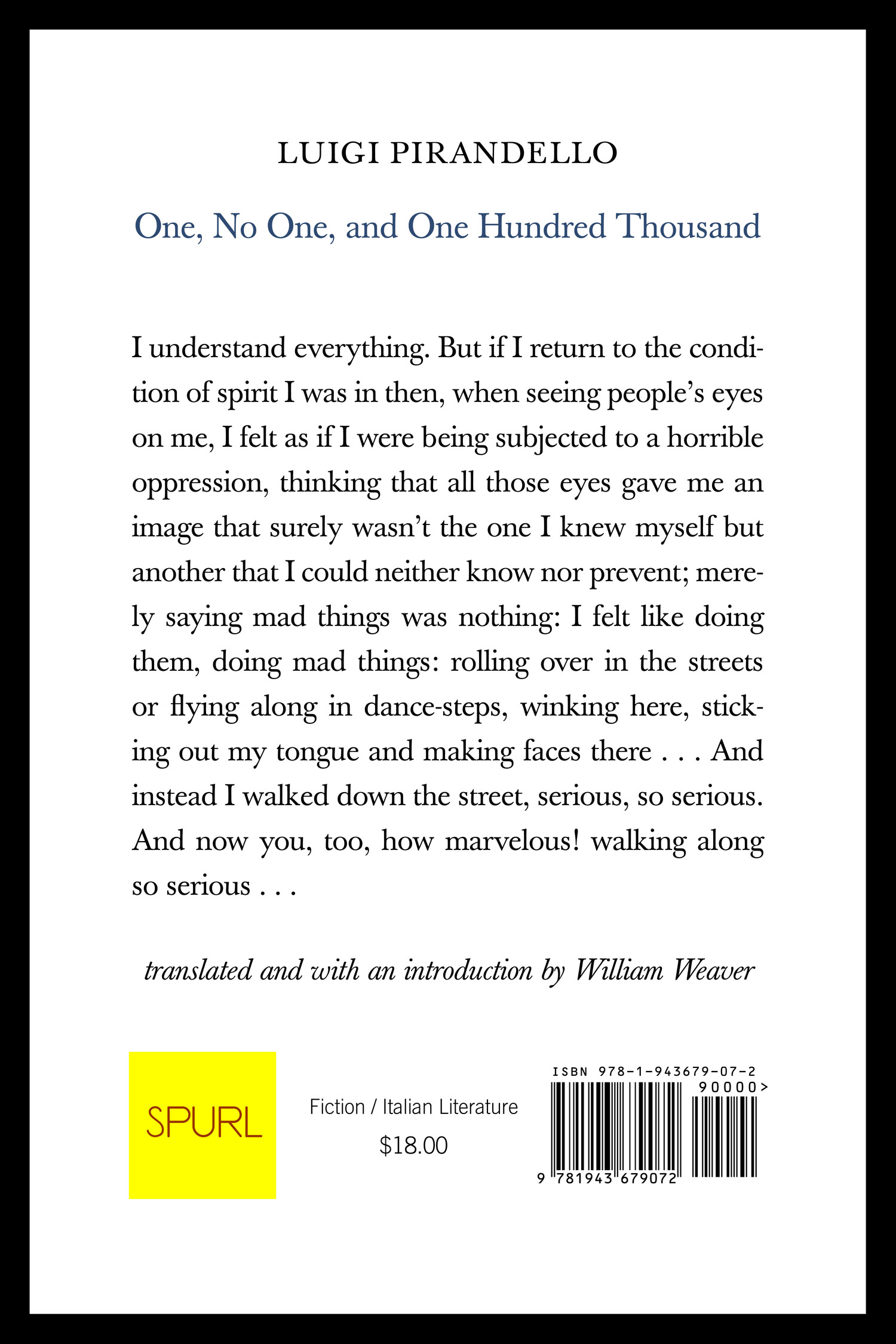Trade paperback, 218 pages. ISBN: 9781943679072.
One, No One, and One Hundred Thousand
BY Luigi Pirandello
Translated from Italian by William Weaver, who wrote of One, No One, and One Hundred Thousand, “The definition of madness, the problem of identity, the impossibility of communicating with others and with being (or knowing) one’s self … Nowhere are these themes more intensely and wryly treated than in this spare, terse novel.”
Luigi Pirandello’s extraordinary final novel begins when Vitangelo Moscarda’s wife remarks that Vitangelo’s nose tilts to the right. This commonplace interaction spurs the novel’s unemployed, wealthy narrator to examine himself, the way he perceives others, and the ways that others perceive him. At first he only notices small differences in how he sees himself and how others do; but his self-examination quickly becomes relentless, dizzying, leading to often darkly comic results as Vitangelo decides that he must demolish that version of himself that others see.
Pirandello said of his 1926 novel that it “deals with the disintegration of the personality. It arrives at the most extreme conclusions, the farthest consequences.” Indeed, its unnerving humor and existential dissection of modern identity find counterparts in Samuel Beckett’s Molloy trilogy and the works of Thomas Bernhard and Vladimir Nabokov.
“In a world that has, justifiably, become a good deal less optimistic than it was sixty-odd years ago, the drama of Vitangelo Moscarda – the tragedy of a man whose great aim was to see clearly and to be truly himself – has perhaps become more familiar and more acceptable. The terrible honesty of the novel and of its protagonist has, with time, become all the more desirable and impelling. Vitangelo has been vindicated.”
Luigi Pirandello (1867–1936) was an Italian novelist, short-story writer, and playwright. His best-known works include the novel The Late Mattia Pascal, in which the narrator one day discovers that he has been declared dead, as well as the groundbreaking plays Six Characters in Search of an Author and Henry IV, which prefigured the Theater of the Absurd. In 1926, Pirandello published One, No One, and One Hundred Thousand, which he had been writing for the previous seventeen years. He was awarded the Nobel Prize for Literature in 1934.
William Weaver (1923–2013) was a renowned translator who brought some of the most interesting Italian works into English. He translated Italo Calvino, Pier Paolo Pasolini, Italo Svevo, Umberto Eco, Alberto Moravia, and Elsa Morante, to name just a few, as well as Pirandello’s The Late Mattia Pascal. An expert on opera, Weaver lived for many years in a farmhouse in Tuscany and later became a professor of literature at Bard College.
REVIEWS AND FEATURES
Excerpts on Berfrois, 3:AM Magazine
M. A. Orthofer, The Complete Review / J. M. Schreiber, Rough Ghosts
Rachael Nevins / Necessary Fiction
Eva Richter and Michael Subialka in Conversation, Pirandello Society of America



